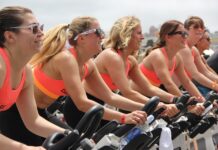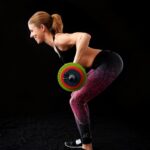In the quest for optimal fitness, exercise is often the focus of our efforts. However, what many people fail to realize is that nutrition plays a crucial role in achieving and maintaining a healthy and fit body. Feeding your fitness is not just about eating the right foods, but also about timing your meals and snacks to fuel your workouts and aid in recovery. In this article, we will explore the importance of nutrition in fitness and provide tips on how to fuel your body for peak performance.
One of the key components of feeding your fitness is understanding the role of macronutrients in your diet. Macronutrients, which include carbohydrates, proteins, and fats, are essential for providing the energy your body needs to perform at its best. Carbohydrates are the body’s primary source of fuel, especially during high-intensity workouts. Protein is crucial for muscle repair and growth, while fats provide long-lasting energy and support overall health.
When it comes to pre-workout nutrition, timing is everything. Eating a balanced meal or snack 1-2 hours before your workout can help fuel your muscles and improve your performance. Opt for a combination of carbohydrates and protein, such as a banana with almond butter or Greek yogurt with berries. Avoid foods high in fat and fiber, as they can cause digestive issues during exercise.
Post-workout nutrition is equally important for recovery and muscle repair. Aim to consume a meal or snack containing carbohydrates and protein within 30 minutes of finishing your workout. This will help replenish glycogen stores and kickstart the muscle repair process. Good post-workout options include a protein shake, a turkey sandwich on whole grain bread, or a smoothie with fruit and Greek yogurt.
In addition to macronutrients, micronutrients such as vitamins and minerals also play a vital role in supporting your fitness goals. Make sure to include a variety of fruits, vegetables, whole grains, and lean proteins in your diet to ensure you are getting all the essential nutrients your body needs. Consider taking a multivitamin or supplement if you have trouble meeting your nutrient needs through food alone.
Hydration is another crucial aspect of feeding your fitness. Dehydration can impair exercise performance and hinder recovery. Aim to drink plenty of water throughout the day, especially before, during, and after your workouts. If you are engaging in intense exercise or sweating heavily, consider adding electrolyte-rich beverages or sports drinks to replenish lost fluids and minerals.
In conclusion, feeding your fitness is about more than just calories and macros. It’s about nourishing your body with the right nutrients at the right times to support your fitness goals. By focusing on a balanced diet rich in macronutrients and micronutrients, staying hydrated, and timing your meals and snacks strategically, you can optimize your performance, enhance your recovery, and achieve your fitness goals. Remember, what you eat is just as important as how you move when it comes to reaching your full potential.














